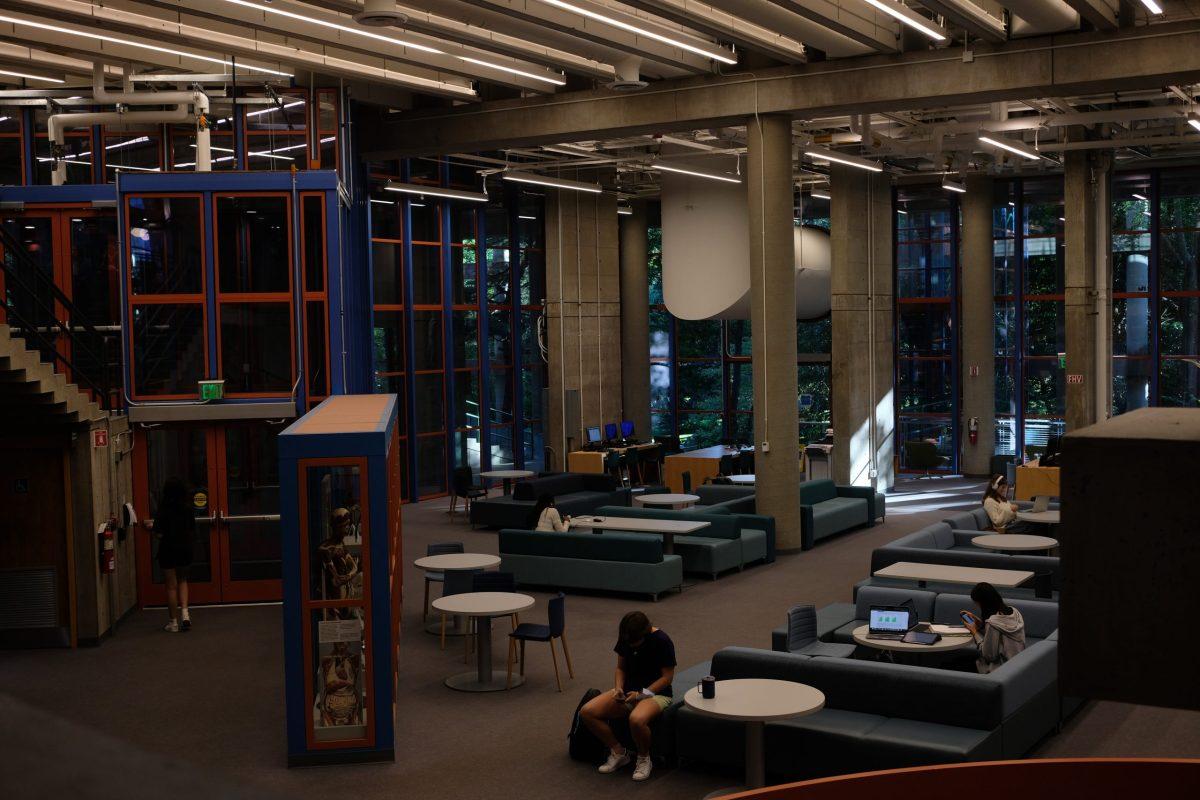As per tradition, the school year began with an image generating outrage on Sidechat. This semester was kicked off with a picture of a sign announcing that the Science Center closes at 11 p.m., an hour earlier than the usual midnight curfew. Although this information is incorrect (the Science Center still only closes at midnight), the online outrage speaks to a greater campus phenomenon: frustration over the lack of study spaces, specifically spaces available at night.
Clapp Library closed for renovations at the end of the fall 2023 semester, eliminating a major study space for students. Before its closure, Clapp was the primary study area for students living on the West side, while the Science Center was mainly used by students on the East side. Although the Mods function as a pseudo-library in the interim, the building is not as large as Clapp, and it is further away from the West side dorms, discouraging many students from using the space. In fact, there is a noticeable lack of study spaces on the West side, with the Art Library, Music Library and Pendleton Atrium becoming noticeably more crowded over the past two semesters. Clapp Library typically was only available from 8:15 a.m. to midnight, thus the Mods also close at midnight, as do the Art and Music Libraries in Jewett. Technically, Lulu is open 24/7 via swipe access, but because the building is the campus center, it is not the most optimal location to productively study.
Wellesley’s lack of a study space past midnight starkly contrasts many other colleges. For example, MIT has four 24/7 libraries and Harvard has two. While operating a library 24/7 might be more difficult at a smaller school like Wellesley, other partner institutions at least have spaces available past midnight. For example, Tufts’s library is open until 2 a.m., and Amherst’s closes at 1 a.m. Nearby, the main libraries of both Babson and Brandeis are open until 2 a.m. Seven Sister Mount Holyoke’s library closes at 2 a.m.
What about dorm spaces? In an email from February of this year, Dean Sheilah Shaw Horton urged students to “not turn the living rooms into study spaces.” While many students bristled at this comment, Horton had a point that these residential spaces are places “for social engagement, connection and relaxation.” Students who want to use spaces in the dorms for social events clash with students using those same spaces for studying. Most infamously, the moving of thesis carrels into the Claflin basement deprived Wellesley Drag of a performance space. Neither group of students are necessarily in the wrong. Students are entitled to use their living space for socializing and relaxation. However, when there is a structural lack of nighttime spaces for students to study, students have no choice but to turn to their dorms.
What makes Wellesley’s lack of study spaces particularly unique is how the early closures of academic buildings are tied to the Honor Code. It is not merely against the rules for a student to be in the Science Center past midnight: it is an Honor Code violation. The involvement of the Honor Code sends the message that studying in one of the most popular academic buildings past midnight is not compatible with acting with honor, integrity and respect. The involvement of the Honor Code implies that Wellesley students cannot be trusted in these buildings past a certain time. This implication has a paternalistic edge that we as adults cannot be trusted with our own study schedules. Our school’s administration takes on the role of a parent, watching the children to make sure they do not stay up too late. While the philosophy might be well-intentioned, it deprives students of the necessary responsibility of personal time management, a skill students develop in college and carry on throughout their lives.
Of course, there are logistical limitations that could contribute to the current constraints on late night study spaces. Custodial workers clean the building at the end of the day, and they cannot work all through the night. Student workers often staff the libraries, even late at night. There might not be many students willing to take a 2 a.m. shift. However, just because there are no study spaces past midnight does not mean that there are no students finishing homework past midnight. Further, these students are not necessarily a minority of students who happened to procrastinate the night before. There are various circumstances that could have led students to work through the night, whether it be a challenging course load, balancing work hours along with school, classes that end later at night, or a particularly busy midterms week. Administration needs to extend academic building hours in order to accommodate these students. By extending building hours, students will not be forced to turn social living spaces into study spaces, allowing them to set healthy boundaries between their academic and social lives.




